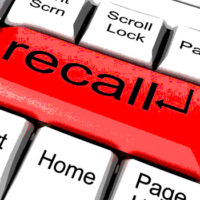In a recent report by Aberdeen Group entitled Proactively Manage Food Safety and Compliance with Integrated Enterprise Resource Planning (ERP), 48 percent of food and beverage manufacturers noted that ensuring compliance with current and future regulations is their top pressure. In the food and beverage industry, regulations such as the Food Safety Modernization Act and GS1 standards are constantly shifting and changing. This makes compliance extremely challenging, and it becomes more difficult to avoid incurring fines. Moreover, there is also a very real threat to a company’s brand and reputation should a mishandled recall occur.
This is where ERP systems—particularly those designed specifically for the food and beverage industry—can provide the required visibility into food safety, quality control and traceability. Food and beverage firms need to be proactive in putting processes and procedures in place to manage food safety and traceability, rather than waiting for a potentially crippling and costly food safety recall situation to happen.
In an industry plagued with product recalls, a food production firm needs to be able to demonstrate that it can track its product and the ingredients therein both upstream and downstream—from raw ingredients to the finished goods and vice versa. To do this, data from every point in the supply chain must be recorded to provide an audit trail. This is why food and beverage firms choose to implement specialized ERP systems to provide a centralized system to manage all this data.
But how does a firm go about selecting the correct ERP solutions for the business?
ERP software can provide many business benefits. Aside from providing essential traceability data and managing quality control and food safety requirements, an integrated ERP solution can also provide cost and efficiency benefits in areas such as forecasting and planning or inventory, logistics, production or waste management. To realize these benefits, any organization about to embark on an ERP selection and deployment project must carefully match its immediate and long-term business needs with the correct ERP solution, and meticulously plan and prepare for the implementation process.
Before you meet with any potential vendors, you should have a list of critical business issues that must be solved by any ERP implementation. You have to see a resolution to all of these issues demonstrated successfully by any software vendor. Your confidence in an ERP vendor’s ability to resolve this list to your satisfaction will often be the deciding factor where two solutions or vendors on your shortlist appear closely matched.
The requirements gathering exercise is the most under-appreciated but critically important phase of ERP selection. You can use your findings as the basis for the whole project. Your requirements criteria can be used as a functionality checklist for business critical processes or for setting the project scope, goals and desired outcomes. It must also be used as a reference point against which to measure project success and achieved milestones.
Your requirements document will also help you identify any organizational or process changes required. Once these are identified you should factor these into both the planning and scope of the project, and ensure adequate resources can be allocated.
An ERP implementation project will affect everyone in your business, not just the information technology department or the senior management team. Therefore, it is imperative that everyone in the business—from senior management all the way down the organizational structure—know why the ERP software is being implemented, what benefits it will bring to the business and what benefits it will bring to their individual day-to-day roles. For example, a food safety officer should be briefed on the benefits of moving from a paper-based food safety monitoring system to a real-time electronic data capture solution, and why this is beneficial, not just for them, but for the whole business. Their input should be canvassed during the requirements gathering stage.
Your ERP boat needs a rudder. You should assign a project manager, who will have accountability for the successful roll out the ERP software for your business. Without this your project will be at risk of delays, project scope creep or over-running on budget and time. This situation will very quickly lead to disillusionment and negativity about the whole project. The appointed person should have a working knowledge of each area of your business and thoroughly understand the impact of process or operational changes brought about by the implementation of ERP. For example, what is the impact of deploying our new ERP solution to the factory in August, or is there a better time?
It’s not a secret that successful and effective implementation of ERP software does not happen overnight. Your project manager must define and communicate a set of desired goals and outcomes from the outset. In order to maximize project success, a project budget needs to be established early. This must be a carefully considered sum that is proportional to the efficiencies you are looking to achieve. This will provide the most rewarding return for your investment, in a satisfactory timescale, with the highest realized value of overall benefits.
In summary, the key things to consider before you start on an ERP implementation journey are:
- Assign ownership for the implementation project
- Thoroughly define your requirements, goals and priorities for the ERP implementation
- Ensure communication across the whole business on what you are doing and why
- Set realistic expectations for the outcome
These factors will help ensure that your ERP project delivers material business improvements and, more importantly, the desired outcome.
Product recalls are expensive both in terms of product cost and potential damage to your business’ reputation and brand image. Having and effective ERP solution in place that can perform efficient food safety, traceability and recall procedures will help you to minimize the costs of a recall, and prevent further damage.
Ron Myers is the executive vice president of LINKFRESH.



